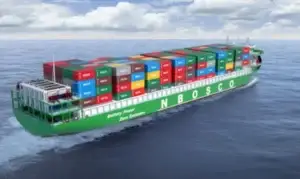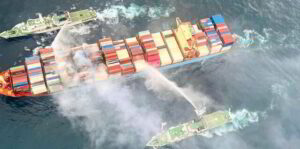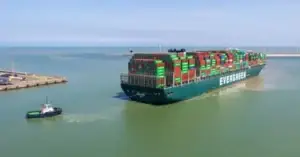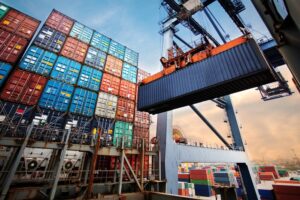Summary
The container shipping industry is a cornerstone of global trade, facilitating the transport of goods across vast distances efficiently and economically.
However, navigating the complex web of regulations and compliance requirements is crucial for maintaining smooth operations. This article delves into the current landscape of container shipping regulations, the importance of compliance, recent changes, and future trends shaping the industry.
The Importance of Container Shipping Regulations
Container shipping regulations are designed to ensure the safety, security, and environmental sustainability of global maritime transport. These regulations cover various aspects, including ship construction and maintenance, cargo handling, crew training, and environmental protection.
Safety and Security
Ensuring the safety of vessels, crew, and cargo is paramount. Regulations such as the International Safety Management (ISM) Code and the International Ship and Port Facility Security (ISPS) Code provide frameworks for maintaining high safety and security standards.
Environmental Protection
Environmental regulations, including the International Convention for the Prevention of Pollution from Ships (MARPOL), aim to minimize the environmental impact of shipping activities. These regulations address issues such as oil spills, air pollution, and waste management.
Key Regulatory Bodies and Frameworks
Several international and national bodies govern container shipping regulations. Understanding these organizations and their frameworks is essential for compliance.
International Maritime Organization (IMO)
The IMO is a specialized agency of the United Nations responsible for regulating shipping. It develops and maintains a comprehensive regulatory framework, including conventions like SOLAS (Safety of Life at Sea) and MARPOL.
National Maritime Authorities
Each country has its maritime authority responsible for enforcing international regulations and developing additional national standards. Examples include the U.S. Coast Guard, the Maritime and Coastguard Agency (MCA) in the UK, and the China Maritime Safety Administration (MSA).
Recent Changes and Updates
The shipping industry is constantly evolving, with regulations regularly updated to address emerging challenges and technological advancements.
IMO 2020
One of the most significant recent changes is the IMO 2020 regulation, which limits the sulphur content in marine fuels to 0.5%. This change aims to reduce air pollution from ships, improving air quality and human health.
Decarbonization Initiatives
The push towards decarbonization has led to new regulations and initiatives aimed at reducing greenhouse gas emissions from ships. The IMO’s Initial Strategy on the reduction of GHG emissions sets targets for reducing carbon intensity and achieving zero emissions by the end of the century.
Compliance Challenges and Solutions
Navigating the regulatory landscape can be challenging for shipping companies. Non-compliance can result in hefty fines, detentions, and reputational damage. Here are some common challenges and solutions.
Staying Updated
Keeping abreast of the latest regulations and amendments can be daunting. Companies can use compliance management software and subscribe to industry updates to stay informed.
Training and Education
Ensuring that crew and staff are well-trained and knowledgeable about current regulations is crucial. Regular training programs and workshops can help maintain compliance.
Documentation and Reporting
Accurate documentation and timely reporting are essential for compliance. Implementing robust record-keeping systems and regular audits can help ensure that all regulatory requirements are met.
Future Trends in Container Shipping Regulations
The future of container shipping regulations is shaped by technological advancements, environmental concerns, and geopolitical developments.
Digitalization and Automation
The adoption of digital technologies and automation in shipping operations is expected to increase. This includes the use of blockchain for secure documentation and AI for optimizing shipping routes and improving compliance monitoring.
Enhanced Environmental Regulations
As the focus on environmental sustainability intensifies, stricter regulations on emissions, waste management, and energy efficiency are anticipated. The development of alternative fuels and green technologies will play a significant role in this transition.
Geopolitical Factors
Geopolitical developments, such as trade tensions and changes in international trade agreements, can impact shipping regulations. Companies must stay informed about global political trends to anticipate and adapt to regulatory changes.
Understanding and complying with container shipping regulations is crucial for the smooth operation of maritime transport. By staying informed about current regulations, investing in training and technology, and anticipating future trends, shipping companies can navigate the complex regulatory landscape effectively. This proactive approach not only ensures compliance but also enhances operational efficiency and sustainability.
For more insights and updates on container shipping regulations, subscribe to our newsletter and stay ahead in the industry. Visit our website for comprehensive guides and resources on maritime compliance.













